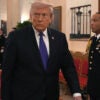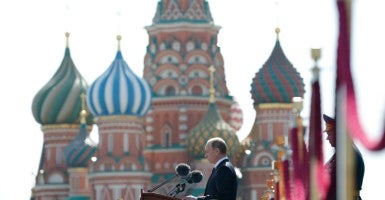Last week the Russian government added one more issue to its growing heap of disputes with the United States.
By pulling the plug on the U.S. sponsored America Center hosted at M. Rudomino All-Russia State Library of Foreign Literature in Moscow, Russian President Vladimir Putin has subtly moved against the U.S.
According to a press release by the U.S. Embassy, the state-controlled library recently terminated the formal agreement for embassy support of the center and announced its intention to replace its American director, taking control of all of the center’s activities.
America Centers (and the smaller version America spaces) are an important worldwide public diplomacy tool for the State Department, most of them housed at institutions of higher learning.
In Moscow, the America Center gave Russian students access to American culture, history and literature and hosted high-level American visitors like “astronauts, actors, athletes, academics, political figures, and authors,” according to the embassy.
As Putin has tightened his grip on the country’s domestic media and intensified the Kremlin’s information warfare, anti-Americanism is a fundamental element of his strategy.
The America Center is but one casualty.
Other U.S. institutions with a presence in Russia have come under threat, targeted by a law dating back to 2012, which classifies democracy building NGO’s as “foreign agents” and imposes severe restriction on their work.
The Russian Senate recently released a list of 12 NGO’s, claimed to be a threat to Russian society, eight American and four Ukrainian, including the National Endowment for Democracy, the International Republican Institute and the Democratic National Institute, among others.
Of the American institutions on the list, only the McArthur Foundation still has a Moscow office. The rest have closed down due to harsh restrictions imposed by the Russian government.
The end of the America Center after 22 years may seem like a minor detail in comparison with problems like the Russian land-grab of Crimea, aggression in Eastern Ukraine, and now Russian military support for Syrian dictator Bashar al-Assad.
Yet, this move by the Russian government is far from minor. According to the U.S. Embassy’s press release,
“these latest unilateral steps further call into question the Russian government’s commitment to maintaining people-to-people ties between the Russian and American people, which continued even during the Cold War and other complicated moments in our countries’ long history.”
The symbolism of the Russian step is undeniable.






























